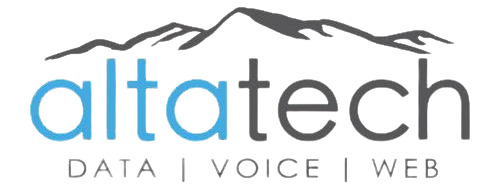IT support is not just an operational necessity it’s a critical investment for small businesses. From ensuring cybersecurity to maintaining seamless operations, having robust IT support can mean the difference between thriving and just surviving. But how much does IT support cost for small businesses in 2024?
The answer depends on several factors, including the type of IT support, the services required, and the size and complexity of your business. This guide will break down the key considerations, pricing models, and costs to help you make informed decisions for your business’s technology needs.
Types of IT Support for Small Businesses
Before diving into the costs, it’s essential to understand the different types of IT support available:
1. Break-Fix Support
This traditional model involves hiring IT professionals only when something breaks or requires immediate attention. While it might seem cost-effective for occasional issues, the unpredictable nature of these expenses can lead to budget overruns.
2. Managed IT Services
Managed IT services involve outsourcing your IT needs to a third-party provider that handles your technology infrastructure proactively. This model typically operates on a subscription basis and includes services like monitoring, maintenance, and support.
3. In-House IT Support
For businesses with complex IT needs, hiring a dedicated IT staff might be the best solution. However, this option is often the most expensive due to salaries, benefits, and ongoing training costs.
4. Hybrid IT Support
Combining in-house staff with external managed services provides a balanced approach for businesses that need specialized expertise without overextending their budgets.
Factors Influencing IT Support Costs
Several variables impact the cost of IT support for small businesses in 2024.
1. Business Size
- Small Offices (1–10 employees): Minimal IT infrastructure typically leads to lower costs.
- Medium-Sized Offices (11–50 employees): Increased complexity, including server management and multiple devices, drives up costs.
2. Services Required
- Basic Support: Includes help desk services and minor troubleshooting.
- Advanced Services: Covers network monitoring, cybersecurity, disaster recovery, and cloud management.
3. Complexity of IT Infrastructure
The number of devices, servers, software applications, and networks directly correlates with IT support costs. Businesses with advanced setups will pay more for support.
4. Level of Proactive Support
Proactive services such as monitoring, preventive maintenance, and cybersecurity audits are costlier than reactive support but can save money in the long run by minimizing downtime and security breaches.
5. Geographic Location
Costs can vary depending on the location of your business. Urban areas or tech hubs tend to have higher rates than rural regions.
IT Support Pricing Models
Small businesses can choose from several pricing models, each with its pros and cons:
1. Hourly Rates
This pay-as-you-go model is common for break-fix services and can range from $75 to $200 per hour, depending on the provider’s expertise and location.
- Pros: Cost-effective for occasional needs.
- Cons: Unpredictable expenses and potential downtime.
2. Flat-Rate Monthly Subscription
Managed IT services typically operate on this model, with costs ranging from $50 to $150 per user per month or $500 to $2,000 per month for small businesses.
- Pros: Predictable budgeting, proactive support, and comprehensive services.
- Cons: Higher upfront commitment.
3. Per-Device Pricing
Some IT providers charge based on the number of devices they manage, with rates around $50 to $100 per device per month.
- Pros: Transparent pricing tied to your infrastructure.
- Cons: Costs can escalate quickly as the number of devices grows.
4. Customized Plans
Tailored services based on your specific needs can include a combination of flat-rate, hourly, and per-device pricing.
Estimated IT Support Costs for 2024
Here’s a breakdown of typical costs based on different IT support models:
| Service Type | Estimated Cost Range | What’s Included |
|---|---|---|
| Break-Fix Support | $75–$200/hour | On-demand troubleshooting. |
| Managed IT Services | $500–$2,500/month | Monitoring, maintenance, help desk. |
| Cybersecurity Services | $500–$5,000/month | Firewalls, antivirus, compliance. |
| Cloud Services | $100–$500/month | Cloud storage, backups, integrations. |
| In-House IT Staff | $50,000–$100,000/year/employee | Full-time technical expertise. |
Hidden Costs of IT Support
While direct costs are easy to identify, small businesses must also account for hidden expenses:
- Downtime: Unplanned outages can result in lost productivity and revenue. Proactive IT support helps mitigate these risks.
- Cybersecurity Breaches: Failing to invest in proper security measures can lead to costly data breaches, legal fees, and reputational damage.
- Scalability: As your business grows, your IT needs will increase, potentially leading to higher costs if not planned for.
How to Reduce IT Support Costs Without Sacrificing Quality
1. Invest in Preventive Maintenance
Proactive monitoring and regular system updates can prevent costly breakdowns.
2. Optimize Existing Resources
Conduct a technology audit to eliminate redundant software or hardware.
3. Outsource Strategically
Consider managed IT services for specialized needs like cybersecurity or cloud management, which can be more cost-effective than hiring in-house staff.
4. Leverage Cloud-Based Solutions
Switching to cloud-based systems can reduce infrastructure costs while improving scalability.
5. Bundle Services
Many IT providers offer discounts for bundling services like monitoring, backups, and help desk support.
Conclusion: What’s the Right IT Support Option for Your Business?
The cost of IT support for small businesses in 2024 varies widely, influenced by factors like business size, IT complexity, and the level of support required. Whether you opt for break-fix services, managed IT support, or a hybrid model, the key is to choose a solution that aligns with your operational needs and budget.
Investing in proactive IT support not only minimizes downtime and enhances productivity but also safeguards your business against costly cybersecurity threats.
If you’re ready to explore cost-effective IT solutions tailored to your small business, contact Altatech your trusted IT support provider today. Remember, the right investment in IT support can propel your business toward sustained success in an increasingly digital landscape.





